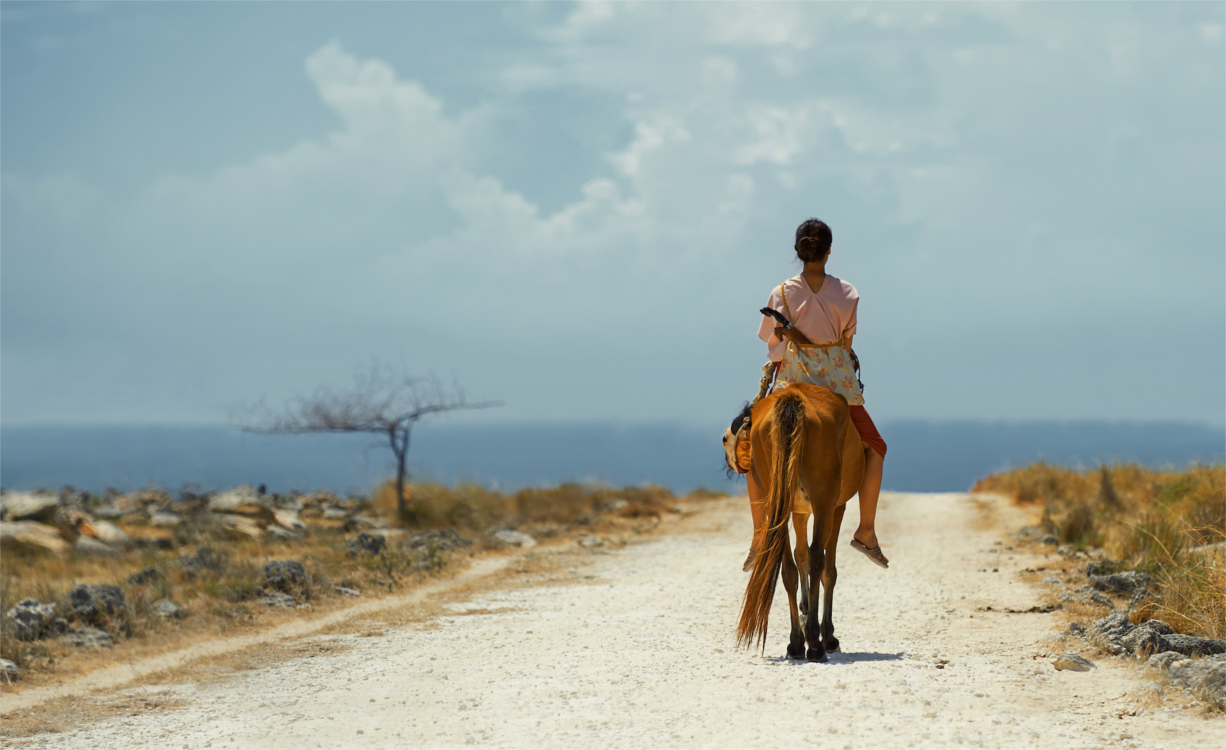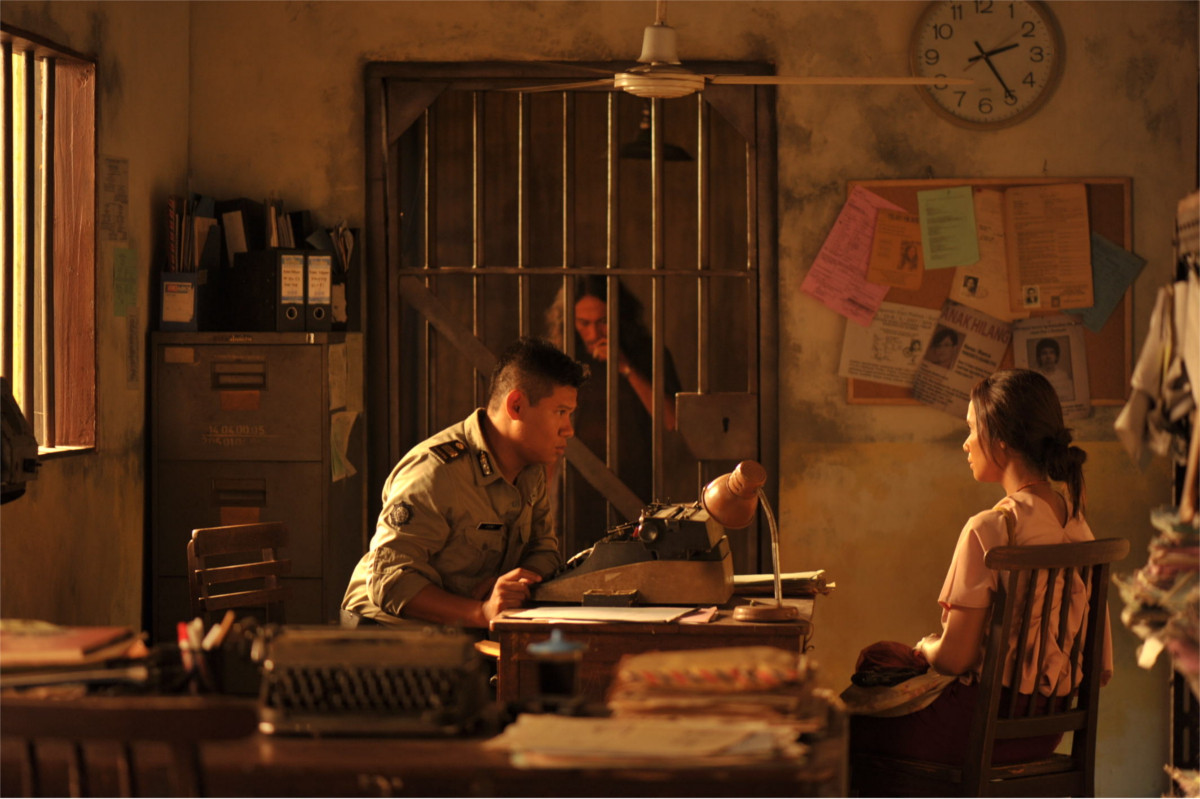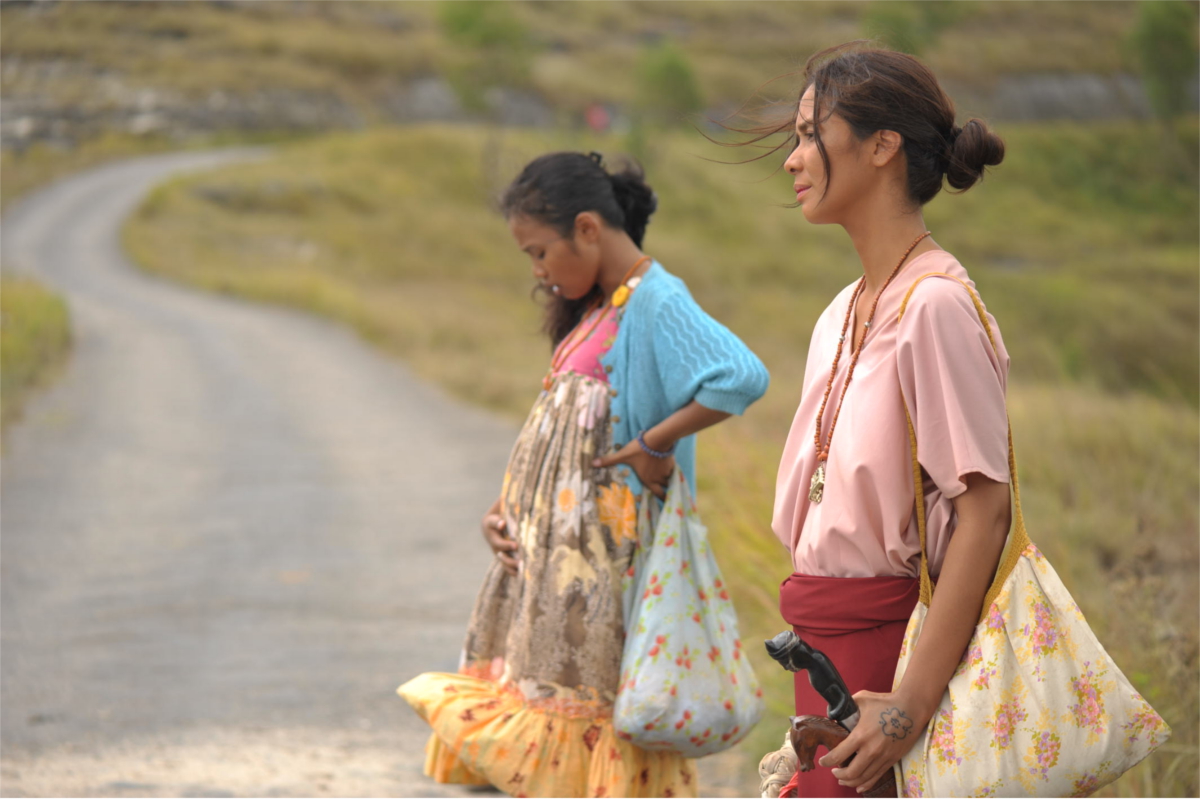American directors could learn a thing or two from Mouly Surya.
On a desolate landscape in Indonesia where the sun beats down on arid sand and spindly trees while mountains loom at the edge of every frame, a hero is seeking atonement. She rides a horse, carries a machete and, hanging always by her side, is the decapitated head of a man who raped her. Her name is Marlina and she is a murderer; her story is one you’ll remember.
Cloaked in cinematic allusions, director Mouly Surya’s surreal rape-revenge story doesn’t so much reference Mad Max (1979) with its open landscape and roving gangs of men, Se7en (1995) with its head in a box and the Spaghetti Western genre with its stoic figure in Marlina (film critic Maggie Lee has cleverly called the film a ‘Satay Western’) as it does reshape them into something far more purposeful. Marlina the Murderer in Four Acts is hardly the homage-clogged, reference-happy epic of Quentin Tarantino’s ilk, but instead a feminist and radically original appropriation of familiar genre tropes.

‘Marlina The Murdered In Four Acts’. Image: Supplied
In a nod to Akira Kurosawa’s Seven Samurai (1954), Marlina (Marsha Timothy) has her home invaded by seven bandits who plan to rape her and steal her livestock. She’s forced to make them all dinner, which she poisons and, in one of the film’s many elegant, subtle sequences, several of them drop dead as she kneels, facing away from them. The group’s leader Markus (Egy Fedly) rapes Marlina and she cuts his head off with a pendulum-like swing of her machete, before setting off on a journey to turn herself in. She is joined by the very pregnant Novi (Dea Panedra), who is eventually kidnapped by Franz (Yoga Pratama), causing Marlina’s journey to take a drastically different course.
Scripted by Surya, Garin Nugroho and Rama Adi, Marlina approaches its serious subject (made all the more impactful by Indonesia’s history of gender-related violence) tenderly, showing Marlina not to be a psychopathic killer but someone who gradually takes on greater burdens and eventually refuses to let injustices carry on. A sequence in which she reports the rape is unsettlingly authentic: Marlina relays the details of her rape to an officer who takes notes without a single glance at her, before he matter-of-factly states that she’ll need to provide proof. Timothy shows her character’s wearied vulnerability with a growing sense of impatience and, having already seen what she can do, we anticipate her next move.

‘Marlina The Murdered In Four Acts’. Image: Supplied
Surreal sequences imbue the film with a kind of darkly playful spirit. Marlina is haunted by Markus, portrayed as a headless body who plays music on a flute no one else can hear. The violence in the film is spontaneous, you laugh at the suddenness, though it never lingers on the gore, keeping it clear of exploitation territory. Because of this, and Zeke Khaseli’s moody, pulsing score, Marlina is a film as smoothly executed as the swift beheadings within it. For all its breathtaking long shots, magnificent use of landscape, subtle development of character and, most crucially, feminist treatment of the rape-revenge story, Marlina the Murderer in Four Acts plays like the film Tarantino is too immature to make.
View the full MIFF program here, or see our Top 5 must-see Aussie films at MIFF.


